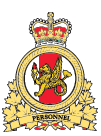 This information has been archived for reference or research purposes.
This information has been archived for reference or research purposes.
Archived Content
Information identified as archived on the Web is for reference, research or recordkeeping purposes. It has not been altered or updated after the date of archiving. Web pages that are archived on the Web are not subject to the Government of Canada Web Standards. As per the Communications Policy of the Government of Canada, you can request alternate formats on the "Contact Us" page.
Letter To The Editor
Re: An Officer Training Corps For Canada
[Vol. 5, No. 1 Spring 2004]
For more information on accessing this file, please visit our help page.
I found the piece by Captain Kristian C. Gustafson informative and a good overall survey on the issue. I also found that the piece focuses too much on training and staffing issues and not enough on the professionalization aspects of this Human Resources question. As an educational expert with extensive experience in professional education programs in several countries, I have to say that, for junior officers in training, the main focus should be on induction processes that require the development of thinking and organization skills, rather than focusing on deportment or other superficial criteria. Furthermore, the main issue is not necessarily the numbers of hours spent drilling or learning tactical operational issues, or even the ritualized indoctrination into the corporate aspects of the military workplace. Rather, it is the process of gradual profesionalization and incorporation into the military organization. In English, this refers to the qualitative changes that must take place to transform an individual from a civilian officer candidate into a maturing military leader with the command, leadership and managerial skills required to take up officer duties. All courses and programs must be tailored to meet this graduated progression with clear benchmarks and milestones that have existed in professional education literature since the 1980s. Over the last two decades, other professions, such as those in the health and allied professions and the air transportation industry, have undertaken significant and extensive reforms of their educational/training practices following the professionalization paradigm.

The contemporary Canadian military is a complex organization that requires a wide variety of skill sets that go far beyond the standardization of warrior-like aptitudes to lead groups of individuals into combat, though this is something that – from time to time – takes place under irregular theatre operations. Officers at all levels and especially junior ones should be exposed to this universe of skill sets and aptitudes in order to understand their place and raison d’être in the overall functioning of the military. It is by carefully structuring education/training programs that are clearly built around a core of professional expectations that we will get a fully trained and competent officer at the other end of four years, be it via regular training or ROTC-based models. These changes will require that the armed forces take a hard look at their current teaching and learning methods while looking critically at new and emerging approaches, such as problem-solving, modular learning, modelling curriculum and fail-safe reporting, to name but a few.
I believe this piece could be a welcome first step on the road to a reformulation of the development of new generations of officers that will serve Canadian needs and priorities. I also firmly believe that this discussion should be taken up from a larger perspective that incorporates the education and professionalization aspects as well as the training elements into the mix.
Carlos Ruano, Ed.D.
Senior Analyst
Learning Policy Task Team
HRSDC






